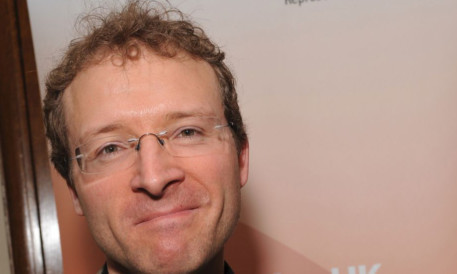UK games representative industry body Tiga has welcomed the inclusion of the sector in a major investigation of the creative industry north of the Border.
Chief executive Dr Richard Wilson said the sector had many challenges to overcome to fulfil its potential and make a significant contribution to the nation’s economic prosperity.
The Scottish Parliament has launched an inquiry into the performance of the creative industry, levels of support, the retention of key skills and obstacles to growth.
It will examine in detail the film and television sector after warnings that it is overshadowed by European rivals because of a lack of funding and facilities.
Scotland does not have a facility on the scale of those in Belfast and Cardiff where Game of Thrones and Dr Who are made.
The Parliamentary investigation will also look at how Scotland’s computer and video games sector, which is concentrated in Dundee, can compete better internationally and reach new markets.
Dr Wilson said: “We very much welcome our inclusion in the investigation as we are a sector which is estimated to grow to be worth £90 billion globally by 2018.”
A presence in such a big market is important for Scotland, he said, which contains many of the UK’s 500 games development studios employing 9,000 people. Sales of video games in the UK totalled £2.19bn last year.
Buoyed by the granting of tax relief on games development, Tiga also welcomed the £400 million for the Enterprise Capital Funds from last week’s Autumn Statement, and the £500m for bank lending to SMEs.
Dr Wilson continued: “We still have problems with accessing financial support to allow our sector’s development.
“We would like a Prototype Fund to help start-up studios develop playable prototypes, and a Creative Content Fund to encourage new studios and stimulate creativity.
“We would like export tax relief to incentivise more small firms to export, thereby promoting export-led economic growth.
“Regional or national games development incubators should be established to enable more successful start-ups.”
Tiga’s wish list also includes training tax relief for SMEs to offset expenditure on training, and he added: “We look forward to making these points to the Scottish Parliament.”
Mid-Scotland and Fife MSP Murdo Fraser, who chairs the committee, said: “There is definitely a sense that Scotland is losing out. We want to understand why other parts of the British Isles and other parts of Europe being preferred for major productions.”
Creative Scotland highlighted the scale of problems, saying many in the industry felt it was at a crisis point. Just six feature films were made in an average year, with box office hits the exception to the rule.
A Scottish Government spokesman said: “We want to see our creative industries making an even greater contribution to employment and economic output in Scotland.”
